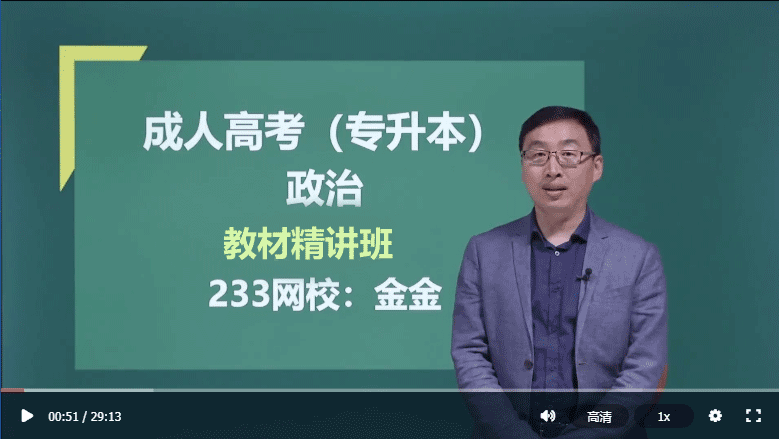2005е№ҙдё“еҚҮжң¬йў„жөӢйўҳвҖ”вҖ”иӢұиҜӯе‘Ҫйўҳйў„жөӢиҜ•еҚ·пјҲдёғпјү
71. A folk song is also a ballad when it .
A. tells a story B. is sung by workers
C. makes the listeners feel sad D. covers many kinds of music
72. According to the author, which of the following is not always a folk song?
A. A ballad B. A sailorвҖҷs song C. A state song D. A goatherdвҖҷs song.
73. According to the passage, which of the following is not true of a folk song?
A. It is passed on orally B. It has different forms
C. It may talk about work D. It is found only in the western states
74. The author uses the example of вҖңHome on the RangeвҖқ to show that folk songs .
A. always tells a story B. are based on written forms
C. may come from popular songs D. have become state songs
75. The main topic of the passage is the .
A. different kinds of folk songs B. development of popular music
C. definition of a ballad D. importance of folk songs in American life
Passage Four
We find that bright children are rarely held back by mixed-ability teaching. On the contrary, both their knowledge and experience are enriched. We feel that there are many disadvantages in streaming (жҠҠвҖҰвҖҰжҢүиғҪеҠӣеҲҶзҸӯ) pupils. It does not take into account the fact that children develop at different rates. It can have a bad effect on both the bright and the not-so-bright child. After all, it can be quite discouraging to be at the bottom of the top grade!
Besides, it is rather unreal to grade people just according to their intellectual ability. This is only one aspect of their total personality. We are concerned to develop the abilities of all our pupils to the full, not just their academic ability. We also value personal qualities and social skills, and we find that mixed-ability teaching contributes to all these aspects of learning.
In our classrooms, we work in various ways. The pupils often work in groups: this gives them the opportunity to learn to co-operate, to share, and to develop leadership skills. They also learn how to cope with personal problems as well as learning how to think, to make decisions, to analyse and evaluate, and to communicate effectively. The pupils learn from each other as well as from the teacher.
Sometimes the pupils work in pairs; sometimes they work on individual tasks and assignments, and they can do this at their own speed. They also have some formal class teaching when this is appropriate. We encourage our pupils to use the library, and we teach them the skills they need in order to do this efficiently. An advanced pupil can do advanced work: it does not matter what age the child is. We expect our pupils to do their best, not their least, and we give them every encouragement to attain this goal.
76. In the passage the authorвҖҷs attitude towards вҖңmixed-ability teachingвҖқ is .
A. critical B. questioning C. approving D. objective
77. By вҖңheld backвҖқ (Line 1) the author means вҖң вҖқ.
A. made to remain in the same classes
B. forced to study in the lower classes
C. drawn to their studies
D. prevented from advancing
78. The author argues that a teacherвҖҷs chief concern should be the development of the studentвҖҷs .
A. personal qualities and social skills
B. total personality
C. learning ability and communicative skills
D. intellectual ability
79. Which of the following is NOT MENTIONED in the third paragraph?
A. Group work gives pupils the opportunity to learn to work together with others
B. Pupils also learn to develop their reasoning abilities
C. Group work provides pupils with the opportunity to learn to be capable
organizers
D. Pupils also learn how to participate in teaching activities
80. The authorвҖҷs purpose in writing this passage is to .
A. argue for teaching bright and not-so-bright pupils in the same class
B. recommend pair work and group work for classroom activities
C. offer advice on the proper use of the library
D. emphasize the importance of appropriate formal classroom teaching
V. Writing (20 points)
Directions:
For this part, you are allowed 20 minutes to write a letter of about 80 words according to the following situation.
дҪ жҳҜAliceгҖӮдҪ зҡ„жңӢеҸӢBonnieеҫҲеҝ«е°ұиҰҒеҲ°дҪ зҡ„д№Ўй—ҙе°ҸеұӢжӢңи®ҝпјҢдҪҶдҪ еҚҙиҰҒеҮәеҺ»дёҖдјҡе„ҝгҖӮз•ҷдёҖеј дҫҝжқЎз»ҷеҘ№пјҢе‘ҠиҜүеҘ№йЈҹе“ҒеңЁе“Әе„ҝпјҢе‘ҠиҜүеҘ№дёҖдёӘдәәеңЁеұӢйҮҢж—¶еә”жіЁж„Ҹдәӣд»Җд№ҲгҖӮ
еҸӮиҖғзӯ”жЎҲ
IпјҺPhonetics
1. C 2. D 3. B 4. B 5. B
6. A 7. C 8. D 9. C 10. A
IIпјҺVocabulary and Structure
11. C 12. A 13. B 14. B 15. C
16. C 17. C 18. B 19. D 20. A
21. B 22. C 23. B 24. B 25. B
26. A 27. A 28. B 29. B 30. D
31. B 32. A 33. D 34. B 35. C
36. C 37. C 38. D 39. A 40. C
41. B 42. A 43. B 44. B 45. B
46. C 47. A 48. C 49. B 50. A
III. Cloze
51. B 52. C 53. A 54. C 55. D
56. C 57. B 58. D 59. D 60. B
IV. Reading Comprehension
61. D 62. C 63. A 64. D 65. B
66. B 67. D 68. A 69. D 70. C
71. A 72. C 73. D 74. C 75. A
76. C 77. D 78. B 79. D 80. A
V. Writing
May 18, 2002
Dear Bonnie:
I will be away for a while. The key to the cottage is under the doormat, and the food is in the refrigerator. After entering the house, lock the door from inside at once. The cottage is far away from the nearest town, and the area is not quite safe from burglars. So I think the saying is right вҖңWhere there is precaution, there is no dangerвҖқ.
Have a nice stay here.
Yours,
Alice
зӣёе…іжҺЁиҚҗ
- 2017е№ҙжҲҗдәәй«ҳиҖғдё“еҚҮжң¬иӢұиҜӯиҖғиҜ•жЁЎжӢҹиҜ•йўҳеҸҠзӯ”жЎҲдәҢ03-22
- 2017е№ҙжҲҗдәәй«ҳиҖғдё“еҚҮжң¬иӢұиҜӯиҖғиҜ•жЁЎжӢҹиҜ•йўҳеҸҠзӯ”жЎҲдёҖ03-22
- 2016е№ҙжҲҗиҖғдё“еҚҮжң¬иӢұиҜӯиҖғеүҚеҶІеҲәиҜ•йўҳеҸҠзӯ”жЎҲжұҮжҖ»10-28
- 2016жҲҗиҖғдё“еҚҮжң¬иӢұиҜӯеӨҮиҖғиҜ•йўҳеҸҠзӯ”жЎҲ14еҘ—08-25
- 2016е№ҙжҲҗдәәй«ҳиҖғдё“еҚҮжң¬иӢұиҜӯжЁЎжӢҹиҜ•йўҳеҸҠзӯ”жЎҲ6еҘ—08-04
| ҝОіМЧЁТөГыіЖ | ҪІКҰ | ФӯјЫ/УЕ»ЭјЫ | Гв·СМеСй | ұЁГы |
|---|---|---|---|---|
| УпОД(ёЯЖрөг)ҫ«ҪІ°а | өЛҫэГД | ЈӨ150 / ЈӨ150 |  |
ұЁГы |
| УўУп(ёЯЖрөг)ҫ«ҪІ°а | Monica | ЈӨ150 / ЈӨ150 |  |
ұЁГы |
| КэС§(ОД)ҫ«ҪІ°а | Нх·ј | ЈӨ150 / ЈӨ150 |  |
ұЁГы |
| КэС§(Ан)ҫ«ҪІ°а | ВЮУЧЦҘ | ЈӨ150 / ЈӨ150 |  |
ұЁГы |
| ҙуС§УпОД(ЧЁЙэұҫ)ҫ«ҪІ°а | Е·Сф°ШБШ | ЈӨ150 / ЈӨ150 |  |
ұЁГы |
| УўУп(ЧЁЙэұҫ)ҫ«ҪІ°а | Monica | ЈӨ150 / ЈӨ150 |  |
ұЁГы |
| ёЯөИКэС§(Т»)(ЧЁЙэұҫ)ҫ«ҪІ°а | НхМО | ЈӨ150 / ЈӨ150 |  |
ұЁГы |
| ёЯөИКэС§(¶ю)(ЧЁЙэұҫ)ҫ«ҪІ°а | ВЮУЧЦҘ | ЈӨ150 / ЈӨ150 |  |
ұЁГы |
ёЁөјҝОіМ
- ёЯЖрөг-КэС§(ОДК·ІЖҫӯАа)

- Нх·јАПКҰ
 Гв·СКФМэ
Гв·СКФМэ
- ёЯЖрөг-УўУп

- MonicaАПКҰ
 Гв·СКФМэ
Гв·СКФМэ
- ЧЁЙэұҫ-ҙуС§УпОД

- Е·Сф°ШБШАПКҰ
 Гв·СКФМэ
Гв·СКФМэ
°ај¶ҪйЙЬ
МЧІН°ьә¬ЈәЧЁЙэұҫVIP°а/ёЯЖрөгVIP°аЈЁә¬ҫ«ҪІ+ХжМвҪвОц+ДЈҝјөгМв)
МЧІНУЕКЖЈә1ЎўЛш¶ЁәЛРДҝјөг
2ЎўҝјЗ°·ў·Е2МЧКФМв
3ЎўГв·СЦШС§Т»ҙОұЈХП
ЕдМЧ·юОсЈә1ЎўГв·СМвҝв
2ЎўҝОіМҪІТе+ҝОјюПВФШ+ТЖ¶ҜҝОМГ







 Гв·СКФМэ
Гв·СКФМэ 




